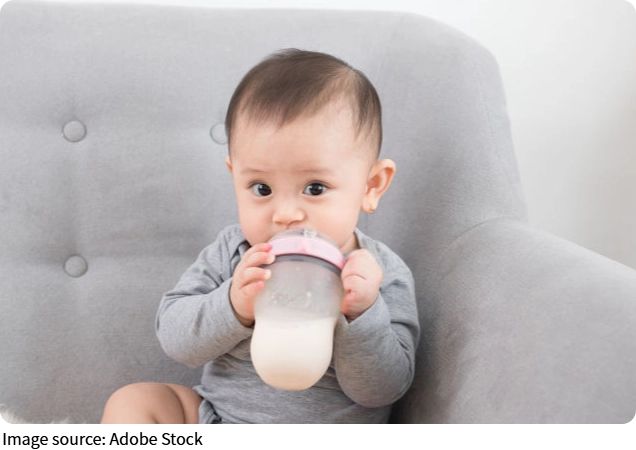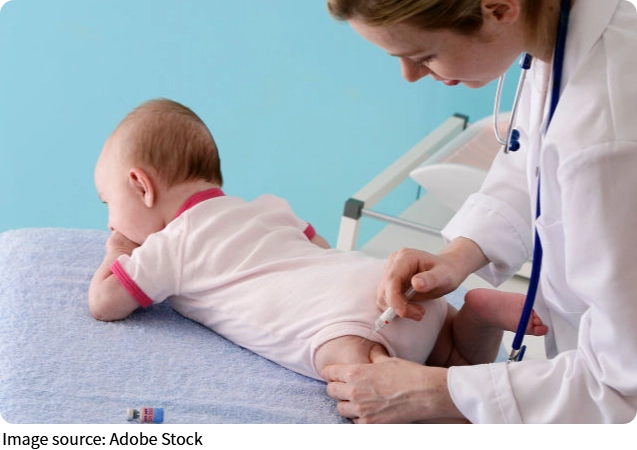Baby Diarrhea Care

As parents, we often face situations that can make us feel helpless, and one of them is when our baby suffers from diarrhea. While it is common for babies to experience a bit of tummy trouble from time to time, it can still be distressing. Diarrhea in infants may be caused by various factors, including infections, dietary changes, or even teething.
Understanding the causes and knowing how to manage this at home can help soothe both you and your baby. Let's take a closer look at some of the effective ways to care for your baby when they have diarrhea.
1. Stay Hydrated: The Key to Prevention
The most important thing when dealing with infant diarrhea is to ensure your baby stays hydrated. Diarrhea can lead to dehydration, which can make your baby feel worse and may even lead to more serious health issues. Be sure to offer your baby fluids frequently. If you're breastfeeding, continue nursing regularly, as mother's milk is hydrating and offers essential nutrients. If your baby is formula-fed, continue with the formula, and consider giving an mouth rehydration solution (ORS) if recommended by your pediatrician.

2. Monitor the Frequency and Consistency
We need to keep track of how often and how severe your baby's diarrhea is. Mild diarrhea may resolve on its own, but frequent, watery stools can be more concerning. If your baby's diarrhea lasts more than 24 hours or if they are showing signs of dehydration—such as dry mouth, fewer wet diapers, or lethargy—it's essential to consult a doctor. Keep a record of your baby's bowel movements to share with the pediatrician if needed.
3. Maintain a Comfortable Diet
If your baby has started solids, you might want to adjust their diet while they're experiencing diarrhea. Stick with simple, bland foods like rice cereal, applesauce, or bananas. Avoid giving your baby any sugary foods or drinks, as these can worsen diarrhea. If your baby is still breastfeeding or formula-feeding, continue with their usual feeding schedule. Make sure to avoid giving them any fruit juices or cow's milk until the diarrhea clears up, as these can irritate the digestive system further.
4. Use Diaper Rash Creams to Prevent Irritation
Babies with diarrhea are more likely to experience diaper rash due to the frequent, wet stools. Diaper rash can be painful and uncomfortable for your baby, so it's important to take preventive steps. Be sure to change your baby's diaper frequently and gently clean their skin with water and mild baby wipes. After each diaper change, apply a thick layer of diaper rash cream with zinc oxide to create a barrier and help protect their sensitive skin.
5. Keep Baby Clean and Dry
Because diarrhea can be messy, it's essential to keep your baby's bottom clean and dry to prevent irritation and further discomfort. Clean your baby carefully with water and a gentle cloth. Avoid harsh wipes with fragrances, as these can cause additional irritation. If possible, let your baby go diaper-free for a short time while you monitor their bottom for any signs of irritation.
6. Watch for Additional Symptoms
Diarrhea on its own may not always be a cause for concern, but if your baby develops additional symptoms like a fever, vomiting, or blood in their stool, it's important to seek medical attention immediately. These symptoms could be signs of an underlying infection or another health issue that requires medical care.
7. Probiotics: Can They Help?
Some studies suggest that probiotics—beneficial bacteria that help regulate the digestive system—may be useful for infants experiencing diarrhea. Probiotic supplements are available in drops or powders, but before introducing any new products, it's best to talk to your baby's pediatrician. Your doctor can recommend the best approach to using probiotics safely to help restore balance in your baby's digestive system.

8. When to Seek Medical Help?
Although mild diarrhea can often be managed at home, there are certain signs when we should reach out to a healthcare professional. If your baby is younger than six months, has severe diarrhea, or shows signs of dehydration (such as a dry mouth, fewer wet diapers, or excessive sleepiness), it's time to contact the doctor. Additionally, if your baby's diarrhea lasts more than a couple of days, it's important to get them checked out to rule out any underlying health concerns.
9. Preventive Measures for the Future
While we can't always prevent diarrhea from happening, there are steps we can take to reduce the risk in the future. One way to help prevent diarrhea is by making sure your baby is up-to-date on their vaccinations, particularly the rotavirus vaccine, which can protect against a common viral cause of diarrhea. Additionally, continue to follow good hygiene practices, such as washing your hands and cleaning bottles and pacifiers regularly, to prevent infections that could lead to diarrhea.
Conclusion: Staying Calm and Caring for Your Baby
Dealing with your baby's diarrhea can be a stressful experience, but with the right approach and care, you can help them feel better and recover quickly. By staying hydrated, monitoring symptoms, and providing a comfortable environment, we can support our babies through this phase. Remember, if you have any concerns or if symptoms worsen, don't hesitate to consult your pediatrician. Your baby's health and well-being are the top priority, and getting the right care will ensure they're back to their happy self in no time.


